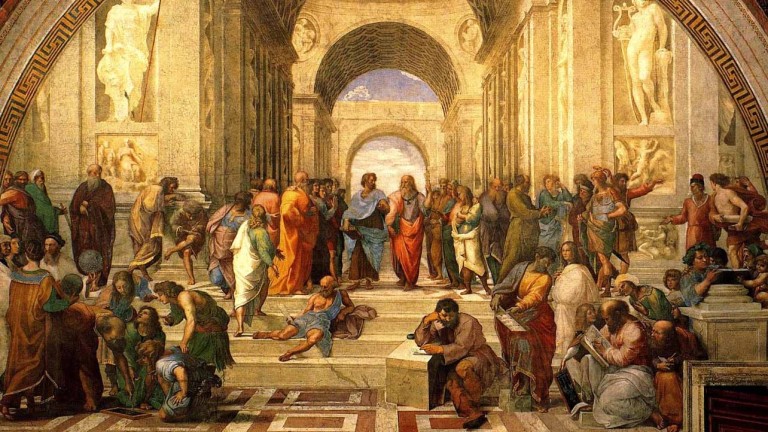An object of history understood as knowledge /part 2/
godflesh·@godflesh·
0.000 HBDAn object of history understood as knowledge /part 2/
The transition from empirical to historical historiography began in the mid-15th century. According to Nikolay Erofeyev, he is associated with the names of Lorenzo Lala, Nicolo Machiavelli, Jean Bochem, Jean Batista Lico, Henry Thomas Bosel, Marx, Ibn Haldum, and so on. the latter is the true father of history in so far as it transforms it into a theoretical discipline aiming not only to expose but also to explain the historical life of our ancestors. Since the interpretation of the historical facts and events itself can be done from different positions, two distinct varieties of the so- interpreted historiography.  [image source](https://thewallpaper.co/renaissance-philosophy-amazing-colorful-artworks-best-arts-ever-historical-images-cool-paints-widescreen-art-photos-for-samsung-1284x722/) The first variation relates to the Jewish Christian religion or so-called. provincialist, church historiography. The light motif of this concept is that everything is explained by God's interference. Individual events in people's lives are only accepted as symbols hinting at something more fundamental in the development of mankind. This line of explanation of historical life changes in the age of enlightenment and the new time when historiography is steadily oriented towards naturalism and materialism. The so-called secular historiography, which attempts to explain the historical life of people not with supernatural but natural causes. Hegel, for his part, distinguishes three types of historiography, namely: Initial history representatives of which are Herodotus, .... She is characterized by its local character in the sense that it is devoted to the description of certain specific processes and events and not to the social life of the people at all.. reflective history - manifested in four varieties universal history / history of the world /. pragmatic history / moral, instructional story that is tries to take advantage of the past in order to solve the tasks of the present /. critical story / it is not a story in the real sense of the word, but rather criticism of the historical works / special or private stories / history of religion, of state, language, science, etc. .... / Philosophical history. Represents thoughtful consideration of history ie. an attempt to rationalize it.
👍 apartphilosopher, rishi-sayz, wave.beads, mys, imperfect-one, steeming-hot, arv1, merlin7, stmpay, muhammadan, boomerang, catchawhale, sam7, fanta-steem, godflesh, madmac, redes, ivach13, snwolak, uglyogreh, dfruit, phusionphil, rarebooksleuth, pipokinha, supriyagade, funnystuff, baqir, santinhos, jorge-caceres, tasker-pl, boostar, elenasteem, booster, ironmax, jeremycrow, jerrybanfield,